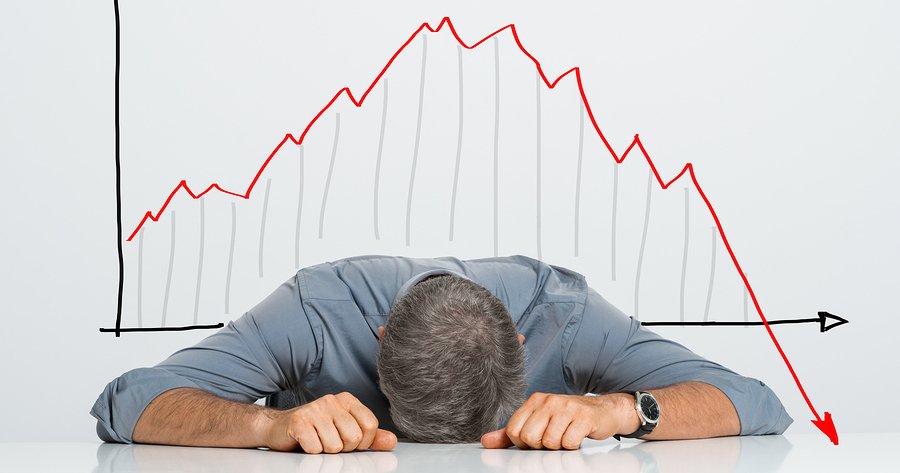As a child, you probably couldn’t wait to be a grownup. After all, there were perks like never being told what to do, staying up as late as you want, and eating ice cream for breakfast if that’s what you’re in the mood for. But over time, we all come to realize that adulthood is about much more than that. We accept the responsibilities along with the fun and hopefully carve out a nice, happy little niche for ourselves. However, new research suggests that today’s 30 and older crowd may not be quite as satisfied with their lives as their counterparts were in earlier generations.
The study, which was conducted at San Diego State University in California, found that the number of Americans 30 and older who report feeling happy and content may be shrinking over time. On the other hand, happiness seems to be on the rise among teens and those in their twenties.1 Twenge, Jean M.; Sherman, Ryne A.; and Lyubomirsky, Sonja. “More Happiness for Young People and Less for Mature Adults.” Social Psychological & Personality Science. 5 November 2015. Accessed 15 November 2015. http://spp.sagepub.com/content/early/2015/09/10/1948550615602933 The subjects were 1.3 million Americans between the ages of 13 and 96 who answered surveys at some point from 1972 through 2014.
The scientists collected the responses and noted that in the early years of the investigation, during the 1970s, approximately 38 percent of the participants who were 30 or older rated themselves as “very happy.” However, in the last few years of the research from 2010 to 2014, the percentage rating themselves very happy in that age group dropped to 32 percent. When the investigators further broke the data down to consider race and ethnicity, some disparities were discovered. In all of the age categories, those identifying themselves as black had increasing happiness ratings through the years of the study. But they appear to be the only racial group that benefited this way. In contrast, whites, Asians, and Hispanic Americans all experienced an overall decrease in their satisfaction with life during the latter part of the study.
Interestingly, the segment of young adults between the ages of 18 and 29 had a different experience than the older groups as the decades went on; they actually increased their happiness quotient slightly over the course of the study. In the early 1970s, just 28 percent called themselves very happy, but that rose to 30 percent by the 2010s. And perhaps most surprisingly, the largest rise came from teenagers, who have a legendary reputation for moodiness and general unhappiness. Upon evaluating the answers of teens between the ages of 13 and 17, the researchers found that this group went from 19 percent calling themselves very happy in the 1970s up to 23 percent by the last few years.
It is not clear why happiness might be rising in younger people and on the wane in those past the age of 30, but the scientists had some possible theories. One factor may be related to perspective: Whereas the future looks rosy and bright when you’re in your 20s, the reality doesn’t always match up as you get into your 30s and 40s. You may not move forward in your career trajectory the way you had planned; your salary may not be what you dreamed of; buying a home may be much tougher than you expected.
The researchers also pointed to technology causing potential problems with happiness. While social media can help younger individuals feel connected and part of a community, that may not hold up as you age. Personal interactions and a sense of having a network to rely on may be harder to find if you live alone and don’t belong to any religious or social groups. And the jury is still out on whether the effects of social media are positive or negative. A 2011 study at Cornell University in Ithaca, New York, showed that Facebook may improve self-esteem,2 Gonzales, Amy L. and Hancock, Jeffrey T. “Mirror, Mirror on my Facebook Wall: Effects of Exposure to Facebook on Self-Esteem.” Cybersychology, Behavior, and Social Networking. 17 February 2011. Accessed 16 November 2015. http://online.liebertpub.com/doi/abs/10.1089/cyber.2009.0411 but a 2012 study at Edinburgh Napier University in Scotland found that the very same social media site may increase stress levels.
Ultimately, the current study can serve as a good reminder that we need to be responsible for our own happiness and satisfaction in life. You may not have the job or home that you always expected, but you can nurture relationships, create fun experiences, and focus on doing things you truly enjoy in your free time. And maybe consider spending some time volunteering at a soup kitchen or hospital this holiday season to help remind yourself of all that you do have in your life.
References
| ↑1 | Twenge, Jean M.; Sherman, Ryne A.; and Lyubomirsky, Sonja. “More Happiness for Young People and Less for Mature Adults.” Social Psychological & Personality Science. 5 November 2015. Accessed 15 November 2015. http://spp.sagepub.com/content/early/2015/09/10/1948550615602933 |
|---|---|
| ↑2 | Gonzales, Amy L. and Hancock, Jeffrey T. “Mirror, Mirror on my Facebook Wall: Effects of Exposure to Facebook on Self-Esteem.” Cybersychology, Behavior, and Social Networking. 17 February 2011. Accessed 16 November 2015. http://online.liebertpub.com/doi/abs/10.1089/cyber.2009.0411 |












It is really a wrong
It is really a wrong proposition that in coming days the life of our children will ever be happy vis-a-vis climate change and fast deteriorating environment. I don’t think the Paris Conference on Climate Change (30th Nov to 11th Dec 2015) will come out with any solution, I doubt, any country has any innovative idea against use of fossil fuel, because no country will ever like to compromise on its development. Today development has become synonymous with fossil fuel. This world could not be saved, sooner or later it is bound to be doomed, unless we immediately find a workable alternative to fossil fuel. I also salute Jon Barron for his solitary attempt to save humanity!
Climate change, if not arrested, will cause immense adverse impacts on general health of human life. Below is my humble submission in greater good of humanity!
I think, I am fighting alone.Please read this also on my idea of solution to save the mankind;
Adopt bio-fuel and save the world
The world is constantly moving towards disaster due to constant rise in green house gases into the atmosphere. The atmosphere has started to deteriorate since the beginning of the 17th century, when the Industrial Revolution has begun. Since then the demand for fossil fuel is also continuously rising. No country can now think to progress without the use of fossil fuel, but its supply is not unlimited. Its reserves are fast depleting, hardly will it go beyond further fifty years, but within that period the damage done to the atmosphere will reach the point of no return. Of late we have marked the intensity of oceanic storm has become more frequent, the winter severe and the summer harsh. Precipitation worldwide has become skewed and spatial, for which flood and drought have become orders of the day. The situation will further degenerate in coming years. Productivity pattern of staples will undergo marked change for the worst, and consequence will be disastrous for the humankind. Starvation, malnutrition and death will become frequent phenomena in certain undeveloped and developing countries. It is about time we saved the world from imminent disaster by finding an alternative to fossil fuel. The sooner we do it, the better for the world and its denizens.
The world in its quest for other fuel alternatives has also identified Hydrogen and Ethanol. But the hazards associated with the use of Hydrogen and partial dependence of Ethanol on other fossil fuels have limited their scope and the search is on for a “stand alone” fuel source to provide security to our future generations. It is true, the western countries like Iceland, Germany, France and the UK, and the US state of California have started the use of Hydrogen to fuel cells, however, except Iceland with its Hydrogen supportive weather, its use has remained restricted to a very negligible percentage because of prohibitive costs of engines and hazards associated with Hydrogen production and handling. Its huge cost is justified because of almost zero effect on environment. But the fact remains that the production of Hydrogen is absolutely dependant on huge energy consumption, therefore, none of the countries except Iceland with its huge geothermal have that potential of renewable energy source to produce Hydrogen with ease.
Oil from the non-edible low fatty acid containing oils, such as Rape Seed, are being converted into bio-diesel, but the production of such bio-diesels are quite negligible, it is not even 1% of the world’s total. The fact also remains that oilseeds like Rape Seed are required to be cultivated in regular agricultural fields and consume extra water and also need regular supply of seeds. Even if the world contemplates to go for mass production of such oil seeds, then there would be serious shortage of food production. The edible crude palm oil could be tried out, but it contains high quantity of unsaturated fat, known as fatty acids, the conversion cost of which is very high. Still it is justified because of recovery of glycerine in the process, but in the world there is no known shortage of glycerine. However, it is anticipated that the international price of crude Palm will shoot up exorbitantly with the rise in demand, and will render it unviable economically. Similarly, Ethanol produced from sugar cane mainly done at Latin American countries is not a very viable option, because again it requires regular water supply and uses agricultural land, and delivers only single crop in a year.
In India, the search of a plant, which could be grown in semi arid regions with minimum care, finally settled on Jatropha Carcus. Jatropha delivers fruits in around 30 to 36 months, which could be crushed and converted into biodiesel after due esterification. But in a hurry to identify a viable renewable alternative, its toxic nature and high carbon monoxide emissions of the oil and simultaneously with the fact that Jatropha Carcus brings down the water level of the soil were overlooked. Even for esterification, alcohol is required, which means perennial source of alcohol has to be identified at first. Moreover, it is not a ‘stand alone’ fuel; its emissions do not fulfil the prescribed environmental norms. Besides, no diesel engine could be run singularly on this fuel, unless mixed up with traditional diesel in right proportion. Therefore, the final answer is only the Pongamia Pinnata. The oil from its seeds could be directly used after minimum processing. It is also a ‘stand alone’ fuel, because it has the properties of traditional diesel, which has been confirmed by scientific evaluation conducted by The Indian Institute of Science, Bangalore.
Karanj or Pongagamia Pinnata is always superior to Jatropha, because the later in not native to India, however, Karanj is a native plant for generations. As we know Jatropha is an exotic plant like Eucalyptus, which is dangerous for environment. Jatropha plant has a dominating nature, it contains allelochemicals, and it suppresses the growth of other plants. Therefore, because of its aggressive nature, Jatropha causes harmful impact on surrounding flora. Even Australia went a step ahead to call it a ‘noxious weed,’ whereas Karanj supports many plants and microorganisms. Karanj is one of a very few leguminous tree, which enriches the soil and also supports cross plantation. Jatropha being a poisonous plant, it has to be planted far away from human habitation. Since its seeds are tasty, children may be tempted; therefore, it is a big danger for them. It is said that simply four seeds may prove fatal for human life. There is plenty of information in scientific literatures of African countries, where decades earlier it was planted, about its harming the small children because of its poisoning property. On the other hand, Karanj possesses many medicinal qualities. In Ayurveda, there are plenty of references about miraculous therapeutic properties of Karanj. Traditional healers use its seed oil for generations for treatment of skin troubles and rheumatism, and occasionally in cancer also. We are not sure, what harmful effect Jatropha fume will have both on flora and fauna as well as on environment if the Indian government continues to sponsor Jatropha plantation, it is subject to observation. The initial research in many countries have already proved that biodiesel like Jatropha can also trigger lungs trouble, if its fumes are inhaled.
Usually Jatropha takes at least three years to start its commercial production after planting, but in case of Karanj, there is no such need, because it is native to India and already there are millions of trees available. Therefore, we do not need to invest millions of rupees for plantation of Karanj, even its seed collection procedure will generate millions of employment. Though it is also claimed Jatropha will equally generate employment, yet its plantation it not advisable because of its adverse effect on public health. But Indian planners are already supporting Jatropha,s plantation, even Indian Railways is running selective trains on a mixture of conventional diesel and Jatropha biodiesel. Still I request the Government of India to think once again and make a comparative study of both Jatropha and Karanj, if required it can even invite the experts from the Queensland University of Australia, which is conducting thorough research on Pongamia. Jatropha will not solve any problem rather it will create many in future.
The international experts have accepted that Jatropha biodiesel is costlier than the conventional diesel, therefore, to sell its oil subsidy will be required, which I do not think, India Government will be able to afford in the long run. However, the biodiesel of Karanj is far cheaper, eco-friendly and safe. Many promoters will be interested to plant Jatropha in commercial scale, because it is a lucrative business, whereas such promoters will not find much interest in Karanj plantation, because there are no chances of sale of Karanj saplings. Whenever anything becomes commercial, its very purpose is relegated into background. It is surprising; nobody is even concerned about Jatropha’s adverse impact on environment.
Pongamia Pinnata is an evergreen tree and is one of the hardiest trees with extremely strong roots. Except rocky, it can grow on all soil up to a height of 1500 metres. The annual rainfall of the region must range in between 500mm to 2500mm, and it can tolerate the temperature of 27* to38*C. It grows best in areas with high rainfall and well drained soils. The slope of land should not preferably be more than 30*. It is a leguminous tree, which supplies Nitrogen to soil, and can be verified from the formation of nodules in the roots from the third month of plantation of saplings. It has a life span of minimum of 100 years, and it is an ideal tree to prevent soil erosion. Pongamia supports intercropping with vegetables, which can be grown organically with the delivery of nitrogen from Pongamia, and the bio-compost from the leaves of the tree, which sheds in autumn. The flowers of Pongamia are one of the best sources of honey. The tree starts delivering fruits from the end of the third year; delivering approximately 10 Kgs of seeds and quantity of seeds grow progressively every year. The tree attains maturity within six to eight year, and delivers a minimum of 60kgs of seeds per year. Practically no special maintenance is required after six months of the saplings. This is a fast growing tree and planting of 200 trees per acre is ideal, which would give a minimum of 12000Kgs of seeds from almost sixth year, which is equivalent to about 4000 litres of bio-diesel for the next 100 years, because it seed contains around 30% oil.
Around 200 square metres of land can be identified, which can include highway linings, river and canal embankments or any available piece of land to cover the required area of at least one tree. This piece of land will cover 200 trees, and would be within walking distance of half to one kilometre. It is observed, in case of highway, canal embankments, and river banks approximately 20 feet of land is available on each flank, which remains unutilised, where two rows of Pongamia trees can be planted on both the flanks. Since Pongamia has a very strong root system, which could protect the river banks and canal embankments, and therefore no extra embankment is required. It is, therefore, an answer to soil erosion as well as water conservation in hilly terrain, where usually soil does not retain water for long time, if the terrain is very steep.
One kilometre of highway/canal/river bank would suffice for 1100 yards=1 km=3300 feet=220 trees in one row. On each side, two rows, 440 trees could be planted. One kilometre supports 880 trees with no significant maintenance can support minimum 4 families in a poor country. The same will deliver 132000 Kgs of biomass and 17600 litres of biodiesel and 52800 kilograms of oil cake as bio-fertiliser/ cattle feed for 100 years. If we could plant 10000000 (10 million) trees in a district, then 25000 families earn means for living. The same will deliver 200 million of bio-diesel to supplement the country’s energy requirement and simultaneously 530000 metric tonne bio-fertiliser/cattle feed for the farmers.
This is the only solution to India’s poverty. The UNO can also support Pongamia Pinnata’s plantation all over the world to solve the problem of fuel as well of fast deteriorating environment due to over dependence on fossil fuel. The humankind must be saved. This author has already taken up this issue with the UN; let us see how quickly it responds!
Dr.P.K.Chhetri
true, we are ourselves
true, we are ourselves responsible for our satisfaction and happiness in our life, but it is not an individual’s effort, but a joint effort. Climate change and environmental degradation are together responsible for deterioration in general health of humankind. Read the impact of climate change on human life;
http://www.thestatesman dot com/mobi/news/nb-extra/when-hope-runs-dry/97200.html
This world has to be saved at any cost, and we can do it. No
medicine will save or prolong the life of humankind, if we do not learn before it is too late!